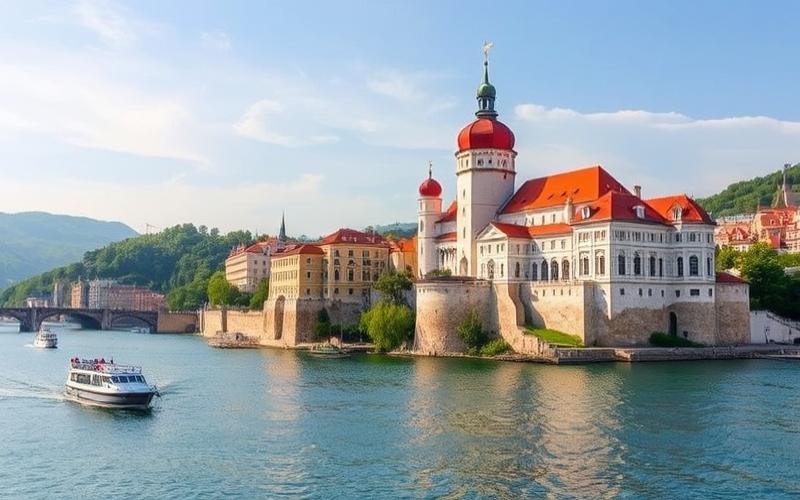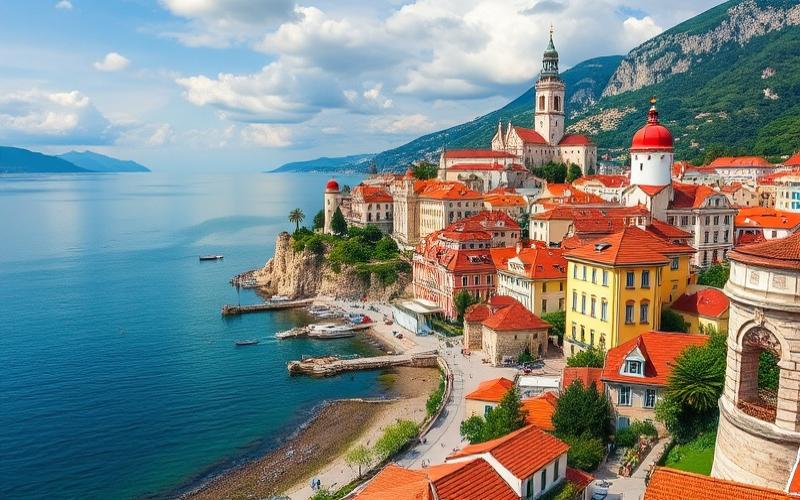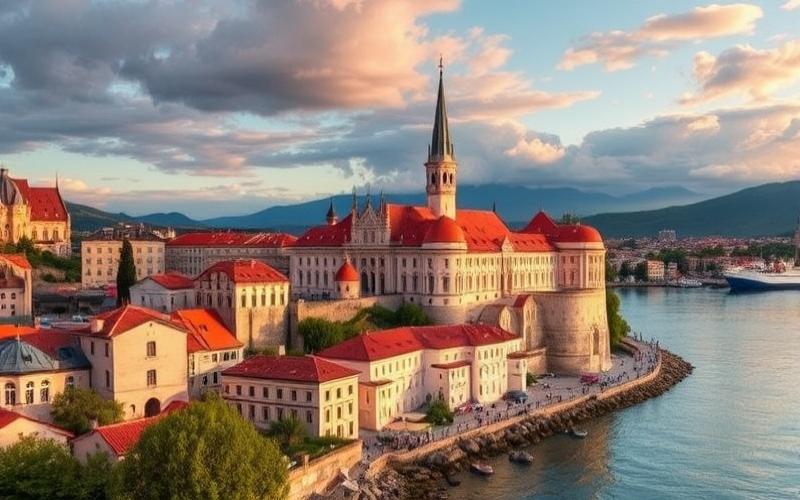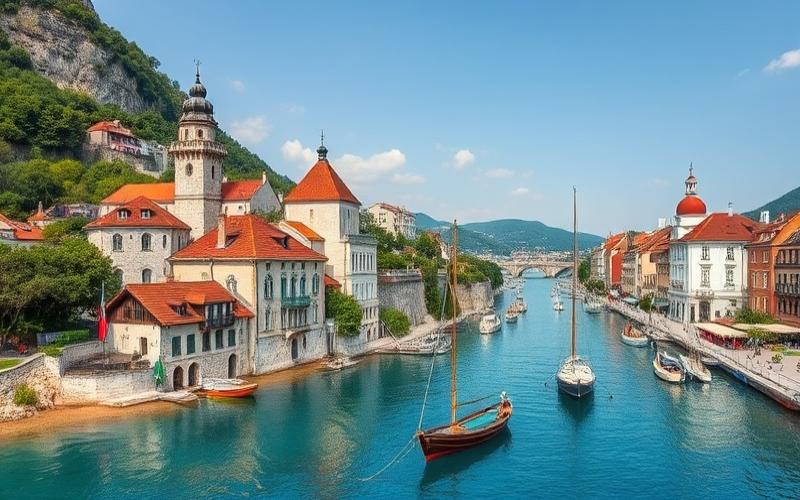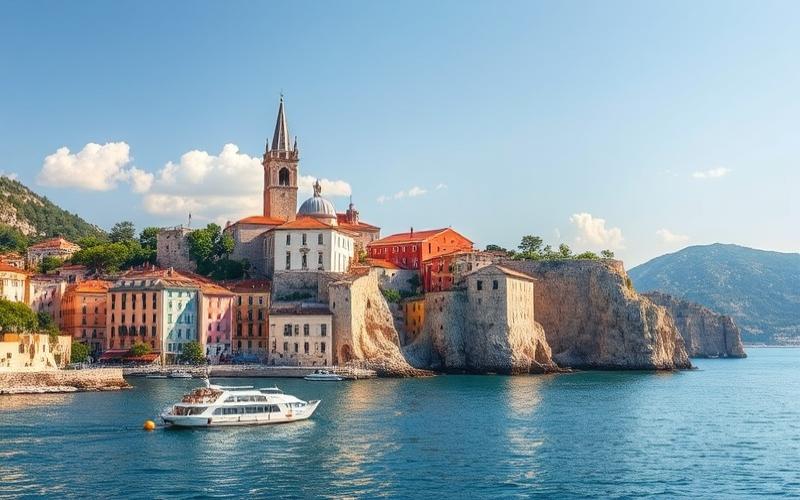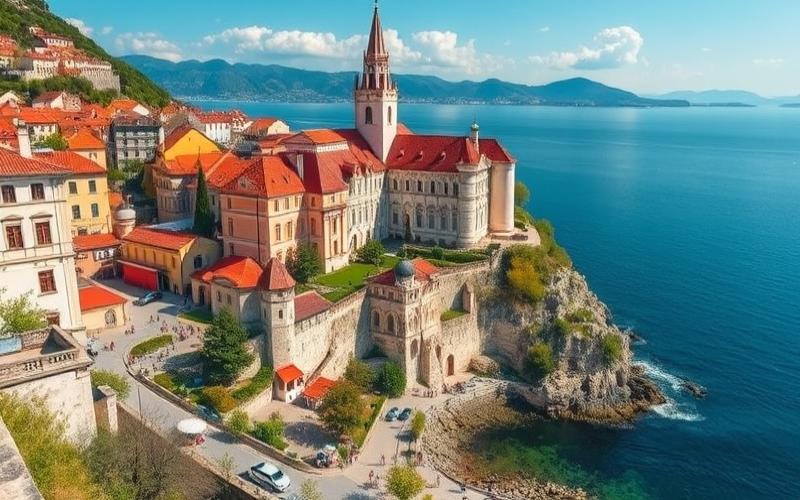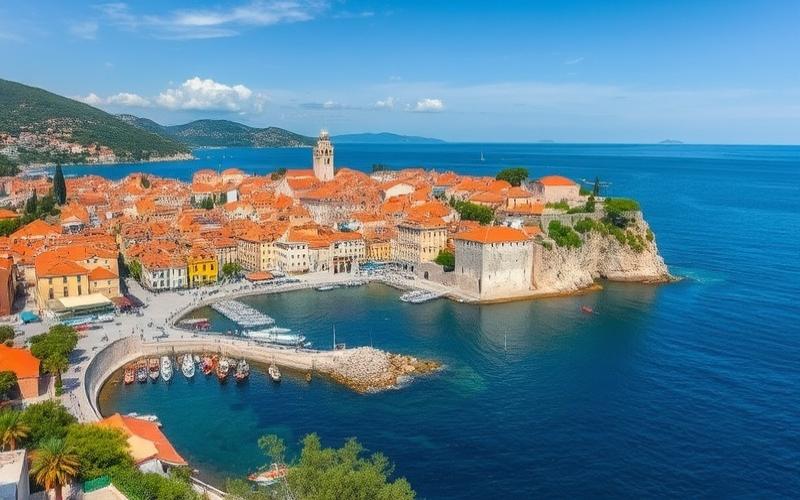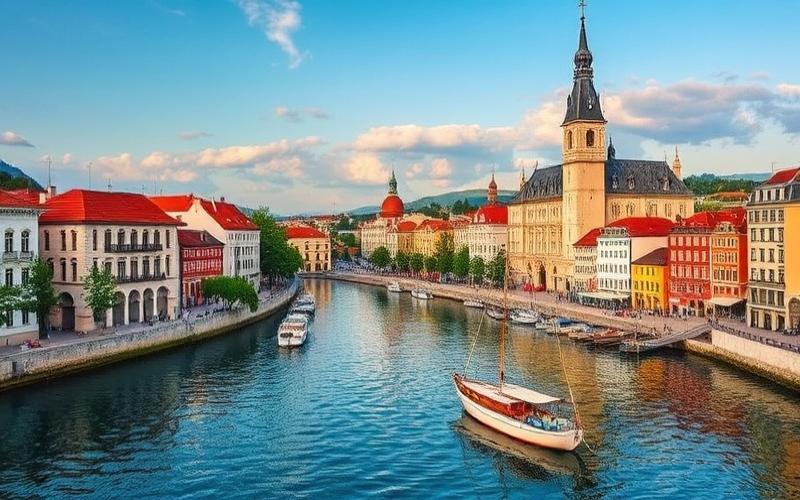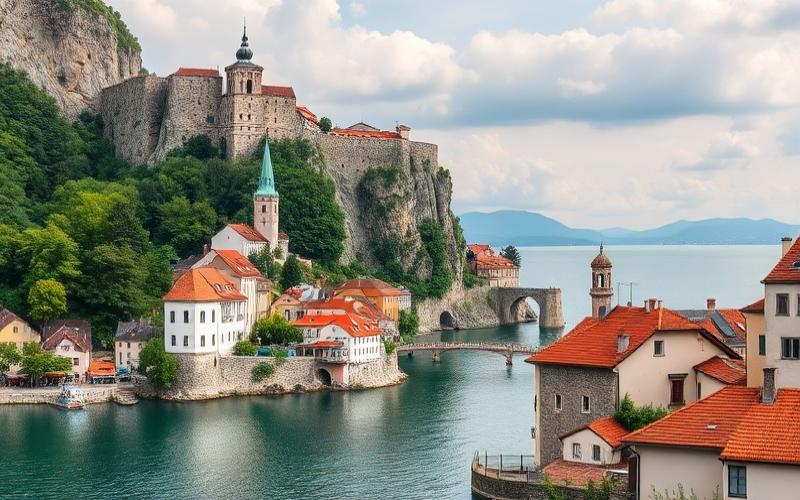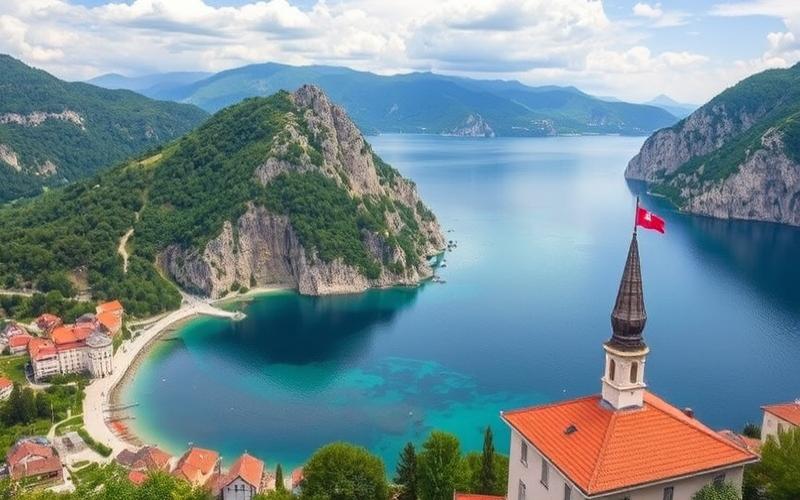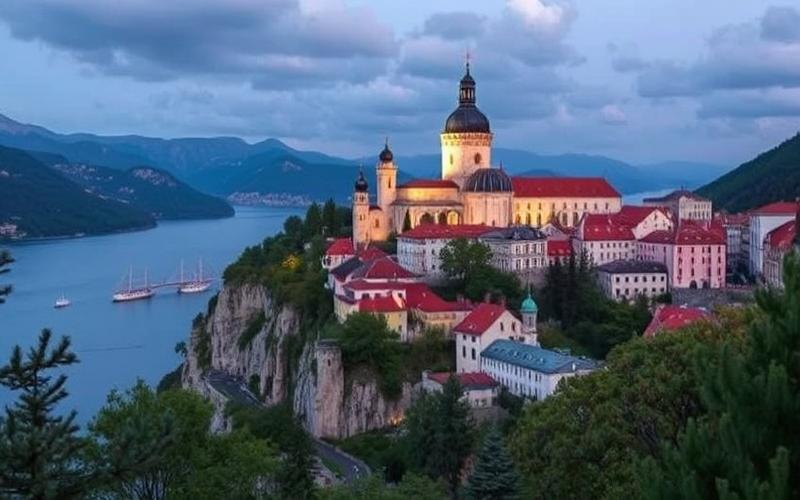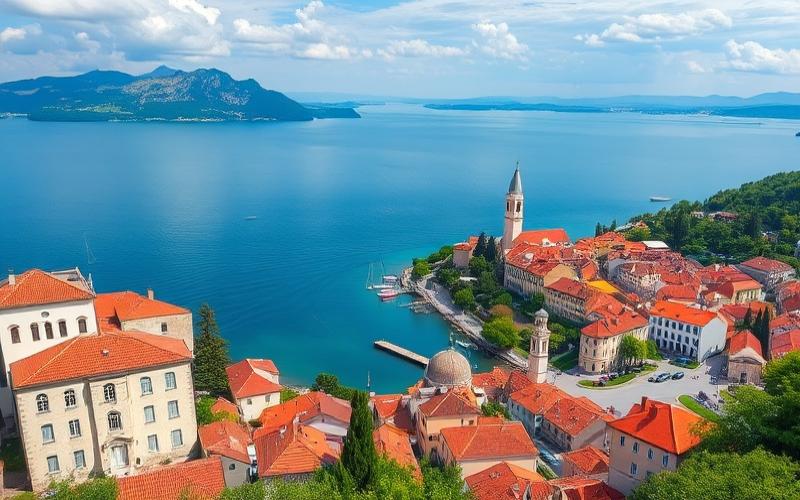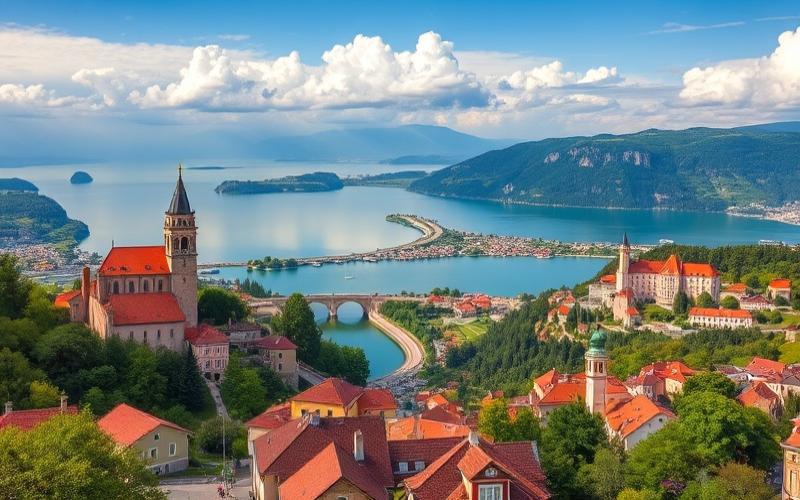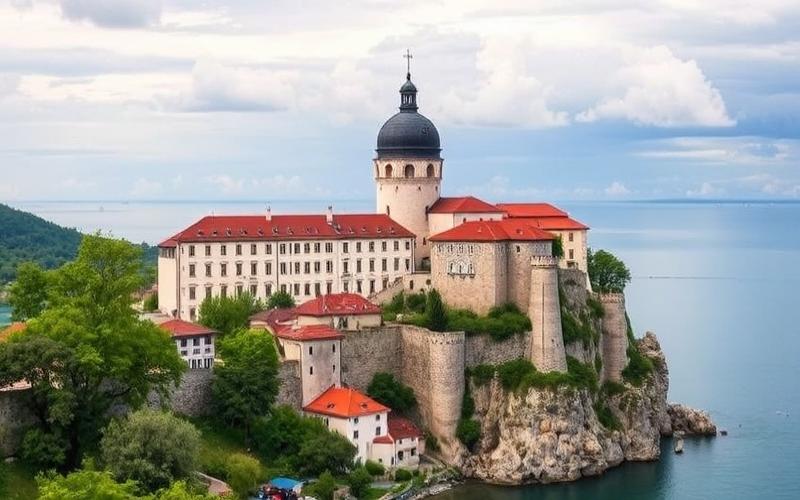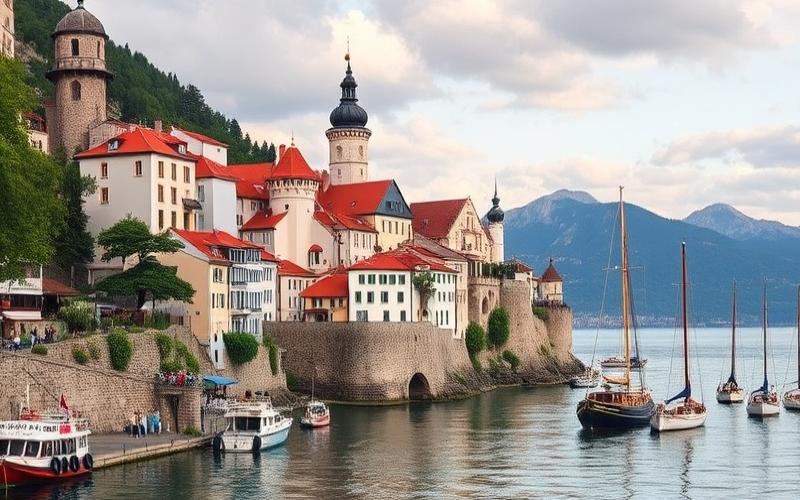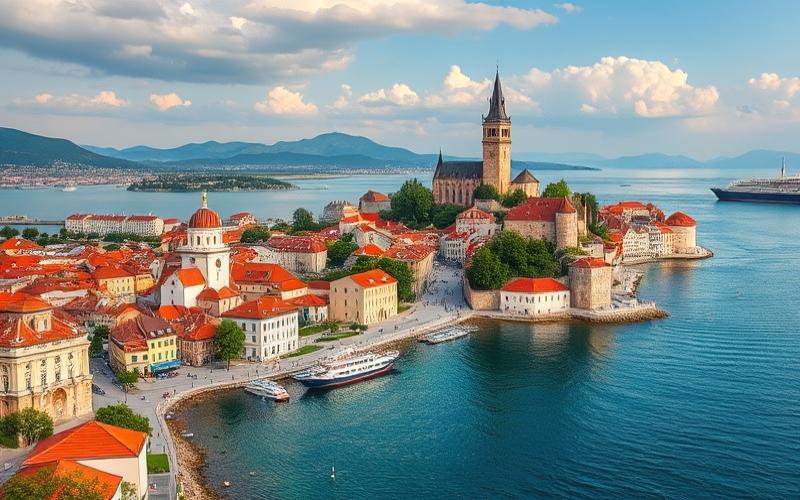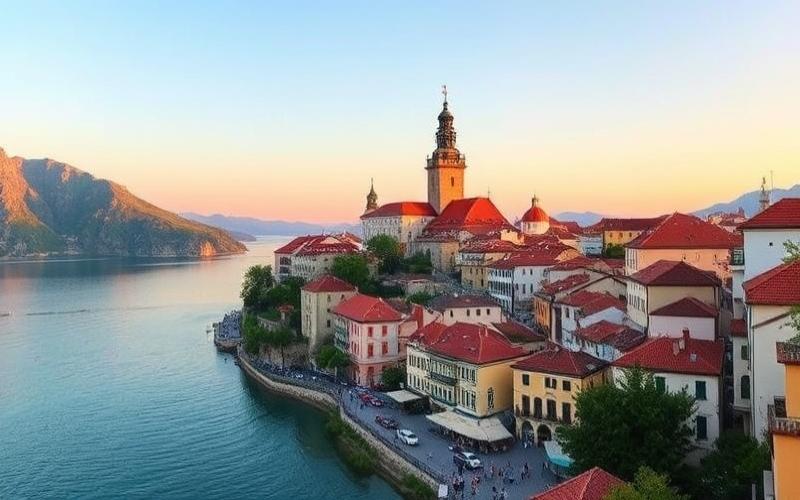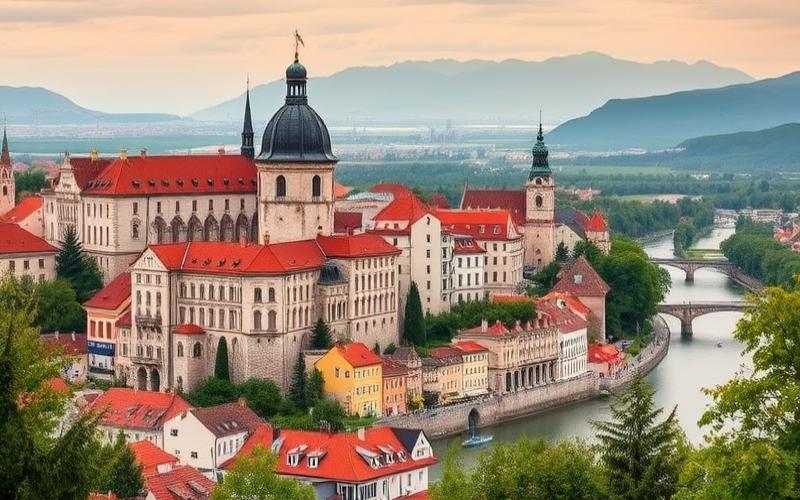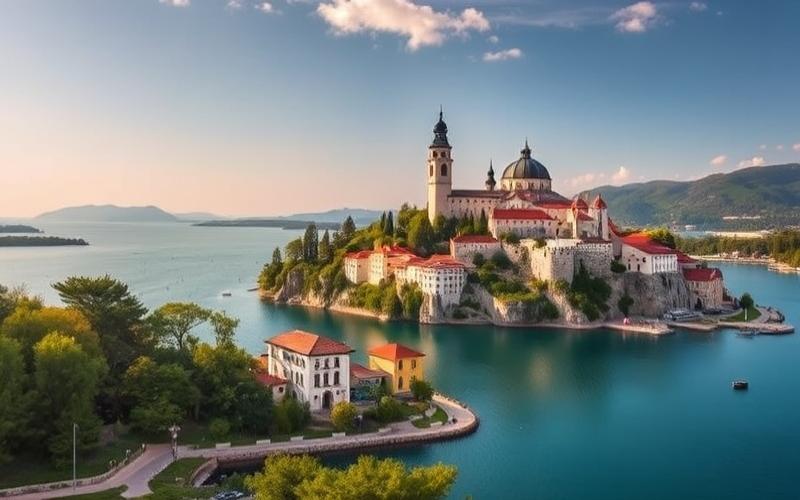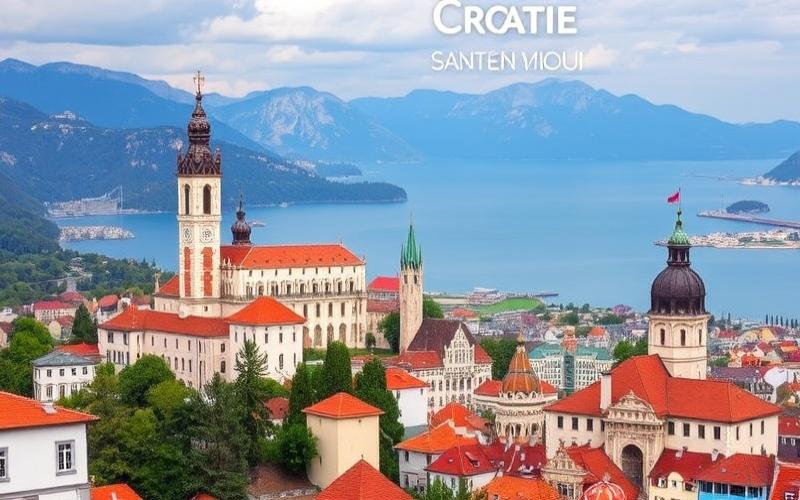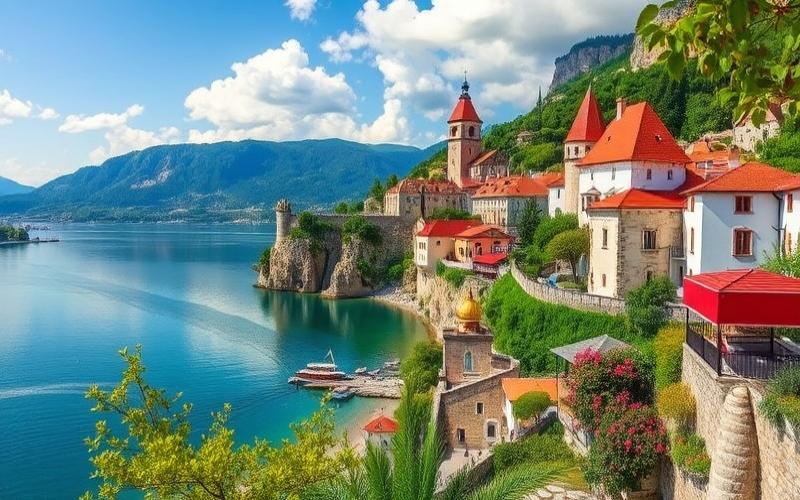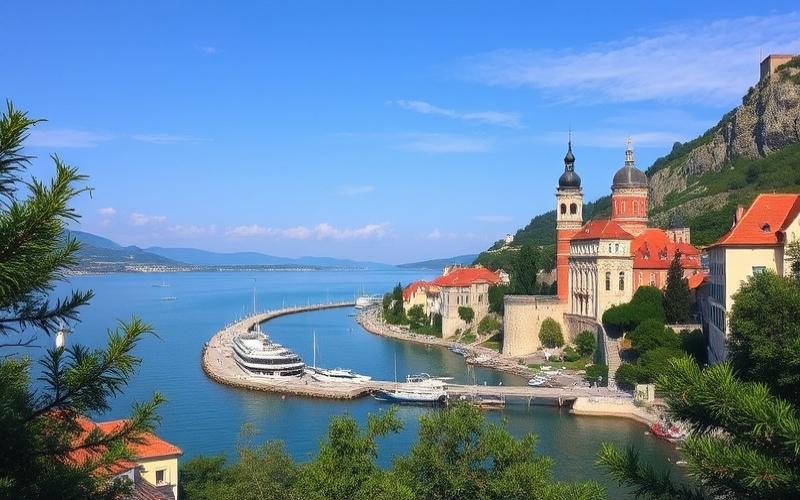
 Published on and written by Cyril Jarnias
Published on and written by Cyril Jarnias
Croatia, with its stunning landscapes and rich cultural heritage, has become a top destination for many travelers seeking new adventures or even a new home.
Navigating through housing options in Croatia can be both fascinating and complex, balancing the charm of old stone houses with the modernity of urban apartments.
This article provides practical tips and savvy advice to help you find the ideal housing in Croatia, whether for a season or for settling down more permanently, while avoiding common pitfalls faced by many expatriates and tourists.
Finding the Hidden Gem: Tips for Securing Housing in Croatia
Understanding the Local Real Estate Market
The Croatian real estate market is particularly dynamic along the coast (Dubrovnik, Split, Istria, Zagreb) with high demand for tourist properties and growing foreign investment. Prices increased by over 15% in 2023 in these areas, while rural regions remain stable or stagnant. Purchasing a property typically involves a 5% tax for older properties and about 1.5% for new properties bought from a company. The most attractive opportunities for buying or renting often appear in late summer and early fall, when tourist demand decreases and prices become more flexible.
| Type of Buyer | Purchase Access | Restrictions |
|---|---|---|
| Croatian Citizens | All property types | None |
| EU Citizens | Residential and commercial properties | Limits on agricultural/forest land |
| Non-EU Residents | Subject to reciprocity | Authorization required |
Using Online Platforms
To find housing in Croatia, it’s recommended to use the following platforms:
- Njuškalo: the most used site for local real estate listings.
- Crozilla: platform dedicated to real estate, with an English interface.
- Index Oglasi: offers listings from individuals and agencies.
- Facebook Marketplace: very popular for seasonal and long-term rentals.
Tips to maximize results:
- Create custom alerts based on your criteria (city, price, property type).
- Set up notifications on the site’s mobile app to not miss new listings.
- Check several times a day, as the best deals go quickly.
Networking and Local Contacts
Connecting with locals or already settled expatriates provides access to exclusive offers and practical advice. The best channels:
- Facebook groups like “Expat in Croatia” or “Housing Zagreb/Split/Dubrovnik.”
- Specialized forums: Expat.com, Internations.
- Community events and informal gatherings in popular neighborhoods.
Advantages:
- Discover listings not published on standard sites.
- Get feedback on neighborhoods, landlords, and common practices.
- Facilitate negotiation through a local contact’s recommendation.
Hiring a Real Estate Agent
Collaborating with a local real estate agent offers several advantages, especially if you don’t speak Croatian:
- Access to a broader portfolio of properties, including “off-market” offers.
- Management of administrative and legal procedures.
- Assistance with negotiation and compliance with local laws.
- Verification of the agent’s certification (ask for their official accreditation number) to avoid unregistered intermediaries.
Visits and Inspections
During visits, it’s essential to check:
- The general condition of installations (plumbing, electricity, insulation).
- Document and permit compliance (property title, land registry, rental authorizations).
- Neighborhood environment: safety, access to transportation, shops, noise disturbances.
- Legal obligations (taxes, maintenance, local regulations).
Checklist for the visit:
- Check for moisture or mold.
- Test electrical and sanitary equipment.
- Request energy bills.
- Examine the condition of common areas (for apartments).
- Ensure there are no disputes over the property.
Price and Condition Negotiation
To negotiate effectively:
- Research average market prices in the target neighborhood.
- Prefer negotiation at the end of the tourist season or in the fall.
- Prepare a list of arguments (needed repairs, vacancy duration, comparison with similar properties).
- Negotiate contract terms: lease duration, security deposit, rent review clauses, early termination options.
- Request discounts for cash payment or long-term commitment.
Conclusions and Warnings
Tips to avoid common mistakes:
- Never sign a contract without translation if you don’t understand Croatian.
- Verify document accuracy and the property’s cadastral status.
- Be wary of overly attractive offers or uncertified intermediaries.
- Read all contract clauses carefully, especially those related to fees, taxes, and termination procedures.
- Take time to visit multiple properties to compare offers.
Important
One of the most common mistakes is rushing into a listing without verifying document compliance or consulting local advice. Careful contract reading and administrative checks are essential to avoid unpleasant surprises.
Good to Know:
In Croatia, prioritize housing searches outside the peak tourist season for better opportunities; use sites like Njuškalo and Crozilla by setting up alerts, and don’t hesitate to connect on forums or events with locals to find exclusive offers. Hire a certified real estate agent to navigate between buying and renting, thoroughly inspect buildings, and negotiate skillfully considering local specifics to avoid common mistakes, such as hastily signing contracts without full understanding.
Housing Budget: How Much to Plan for Living Comfortably in Croatia
Housing Budget in Croatia: How Much to Plan for Living Comfortably
| City/Area | 1 Bedroom Center | 2 Bedrooms Center | 3 Bedrooms Center | 1 Bedroom Suburbs | 2 Bedrooms Suburbs | 3 Bedrooms Suburbs |
|---|---|---|---|---|---|---|
| Zagreb | 600–900 € | 900–1200 € | 1115–1400 € | 400–500 € | 600–800 € | 750–900 € |
| Split | 700–1200 € | 1000–1400 € | 1200–1800 € | 500–700 € | 700–1000 € | 900–1200 € |
| Dubrovnik | 700–1200 € | 1000–1400 € | 1200–1800 € | 500–700 € | 700–1000 € | 900–1200 € |
| Rijeka | 400–700 € | 600–900 € | 800–1300 € | 300–500 € | 450–650 € | 650–900 € |
| Osijek (rural) | 250–500 € | 350–700 € | 500–900 € | 200–400 € | 300–500 € | 400–600 € |
Prices are higher in coastal and tourist cities, especially during peak season. Suburbs and rural regions remain significantly more affordable.
Additional Housing Costs
- Utilities (water, electricity, heating, garbage): 100 € to 180 € per month for a standard apartment
- High-speed internet: 25 € to 40 € per month
- Home insurance: 10 € to 25 € per month, depending on coverage and property value
- Regular maintenance (minor repairs, common area upkeep): budget 10 € to 30 € monthly
Tips to Optimize Housing Budget
- Opt for shared housing: allows splitting rent and utilities, particularly advantageous in large cities or tourist areas.
- Choose suburbs or less sought-after neighborhoods: lower rents and utilities, often quieter setting.
- Negotiate rent outside tourist season: in coastal cities, prices drop significantly between October and May.
- Compare offers based on square footage and included amenities: some apartments include internet or part of the utilities.
- Prefer long-term rentals to benefit from stable and reduced rates.
Regional Differences to Consider
- Large cities (Zagreb, Split, Dubrovnik) and tourist areas see rents up to two to three times higher than in rural regions or inland towns.
- During peak season (June to September), prices on the coast can double or triple, while inland cities remain stable.
- Central neighborhoods are significantly more expensive than suburbs but offer more amenities and access to services.
Realistic Monthly Housing Budget Estimate for a Single Person
- Zagreb (center): 600–900 € (rent) + 150 € (utilities) + 30 € (internet/insurance) ≈ 780–1080 €
- Split/Dubrovnik (center): 700–1200 € (rent) + 170 € (utilities) + 35 € (internet/insurance) ≈ 905–1405 €
- Zagreb (suburbs): 400–500 € (rent) + 120 € (utilities) + 25 € (internet/insurance) ≈ 545–645 €
- Rural region/Osijek: 250–500 € (rent) + 100 € (utilities) + 20 € (internet/insurance) ≈ 370–620 €
Key Takeaways
To live comfortably in Croatia, it’s essential to plan your housing budget carefully, considering location, seasonality, and additional costs. Shared housing and suburban neighborhoods offer the best opportunities to reduce costs, while the coast and large cities require a larger budget, especially during peak season.
Good to Know:
In Croatia, plan for an average monthly budget of 500 to 800 € for a one-bedroom apartment in downtown Zagreb, Split, or Dubrovnik, with additional costs of 100 to 150 € for utilities and maintenance; to save, consider shared housing in tourist areas where prices are higher than in rural areas.
Top Neighborhoods for Expatriates: Where to Live in Croatia
Expatriates in Croatia mainly concentrate in three major cities, each offering distinct advantages: Zagreb, Split, and Dubrovnik. These destinations combine economic opportunities, quality of life, and accessibility for foreign residents.
Zagreb: The Cosmopolitan Capital
Zagreb hosts the highest concentration of expatriates, estimated between 900 and 1,100 French speakers. The city particularly attracts those seeking a dynamic urban life, stable jobs, and vibrant nightlife. The cost of living remains lower than in Germany or Austria, with shared rooms between 250 and 400 € per month and a typical lunch between 6 and 10 €.
Preferred Residential Neighborhoods
Upper Town (Gornji Grad) appeals to expatriates seeking historic charm. Its cobblestone streets, old buildings, and stunning city views make it a picturesque place to live, though more touristy. It’s home to Zagreb Cathedral and St. Mark’s Church, along with small artisan shops.
Lower Town (Donji Grad) represents the modern and dynamic heart of Zagreb. This cosmopolitan neighborhood is filled with bars, restaurants, shops, and parks, notably Zrinjevac Park. It offers a wide variety of accommodations, from modern apartments to old buildings, making it particularly attractive to expatriates seeking diversity.
Remete, located northeast of the city, is a popular choice for French families. This peaceful neighborhood offers a quiet residential setting while remaining close to the French school, facilitating children’s integration.
Trešnjevka, slightly west of Donji Grad, represents an ideal option for families. This residential neighborhood combines tranquility and convenience, with many small shops, parks, and green spaces. It benefits from good public transportation access.
Maksimir attracts those seeking space and greenery. Known for Maksimir Park, Zagreb’s largest park, this neighborhood offers a spacious and green living environment. It’s also close to Zagreb Zoo, making it particularly appreciated by families.
Split: Mediterranean Charm
Split hosts between 200 and 300 French speakers, mainly attracted by the tourism and entrepreneurial sectors. The community is smaller than in Zagreb, but the city appeals with its Mediterranean climate, pleasant living environment, and international connections.
Popular Neighborhoods
The Old Town constitutes Split’s historic center, offering authentic stone houses and an atmosphere rich in history. Veli Varos, located steps from downtown, provides easy access to amenities while maintaining a residential ambiance. Lučac-Radunica attracts lovers of old stones and historic charm.
Dubrovnik: Tourist Appeal
Dubrovnik has between 150 and 250 French speakers, attracted by the hotel sector and tourism dynamism. Popular neighborhoods include the old town with its authentic stone houses, as well as Ploče, Lapad, and Babin Kuk, which offer more residential alternatives near the tourist center.
Accessibility and Amenities
Accessibility is a key factor in neighborhood choice. Expatriates prefer areas well-served by public transportation, particularly trams in Zagreb. Proximity to shops, restaurants, cafes, and green spaces strongly influences residence decisions. Central neighborhoods offer more cultural and social activities, while peripheral areas guarantee more peace and space.
Cultural Atmosphere and Community
French expatriates benefit from a welcoming and close-knit community. In Zagreb, French expatriates regularly meet at the bar “Le Pif” and warmly welcome newcomers. This facilitated integration results from the relatively small size of the expatriate community compared to major metropolises like London or Berlin, creating deeper relationships and remarkable solidarity.
Diversity of Housing Options
Reliable real estate platforms for finding housing include Njuškalo, Crozilla, Oglasnik, and Rentlio. Options vary considerably by neighborhood and city. In Zagreb, rental prices are often high for expatriates, particularly in central neighborhoods. Choices range from modern apartments in Donji Grad to traditional houses in Gornji Grad, to spacious villas in Maksimir.
| City | French-speaking Population | Average Monthly Cost (Shared Room) | Main Characteristics |
|---|---|---|---|
| Zagreb | 900–1,100 | 250–400 € | Urban life, stable jobs, nightlife |
| Split | 200–300 | Variable | Mediterranean climate, tourism |
| Dubrovnik | 150–250 | High | Hotel sector, tourist appeal |
Climate and Seasonality Considerations
Preferring hills proves wise in Zagreb, as summers are hot while winters bring snow, making some small streets poorly cleared. In Split and Dubrovnik, most Croatians live seasonally, with summer being the ideal time for these tourist cities.
Administrative Procedures for Renting
Although sources don’t exhaustively detail administrative procedures, expatriates generally need to register with local authorities and obtain a tax identification number. Registration with the French consular registry facilitates access to administrative services and community events. Landlords typically request identification, professional references, and a security deposit equivalent to one or two months’ rent. It’s recommended to consult the French embassy or consulate to learn about specific procedures to complete before signing the rental contract.
Good to Know:
Zagreb appeals with its Maksimir neighborhood, known for its parks and amenities, while Split offers neighborhoods like Varoš, combining historic charm and accessibility; note that the cost of living varies, with Zagreb generally being more affordable than Dubrovnik. Tip: before signing a lease, ensure you obtain official translations of necessary administrative documents.
Disclaimer: The information provided on this website is for informational purposes only and does not constitute financial, legal, or professional advice. We encourage you to consult qualified experts before making any investment, real estate, or expatriation decisions. Although we strive to maintain up-to-date and accurate information, we do not guarantee the completeness, accuracy, or timeliness of the proposed content. As investment and expatriation involve risks, we disclaim any liability for potential losses or damages arising from the use of this site. Your use of this site confirms your acceptance of these terms and your understanding of the associated risks.

